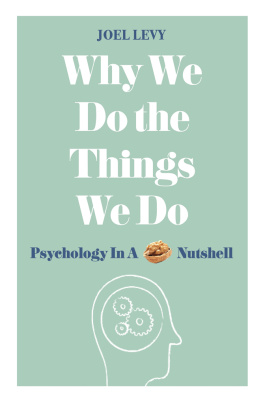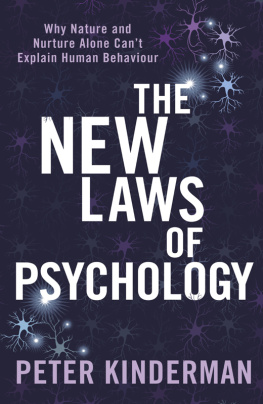Copyright 2016 by Zephyros Press, Berkeley, California
Interior illustrations 2016 Alex Westgate
No part of this publication may be reproduced, stored in a retrieval system, or transmitted in any form or by any means, electronic, mechanical, photocopying, recording, scanning, or otherwise, except as permitted under Section 107 or 108 of the 1976 US Copyright Act, without the prior written permission of the publisher. Requests to the publisher for permission should be addressed to the Permissions Department, Zephyros Press, 918 Parker St., Suite A-12, Berkeley, CA 94710.
Limit of Liability/Disclaimer of Warranty: The publisher and the author make no representations or warranties with respect to the accuracy or completeness of the contents of this work and specifically disclaim all warranties, including without limitation warranties of fitness for a particular purpose. No warranty may be created or extended by sales or promotional materials. The advice and strategies contained herein may not be suitable for every situation. This work is sold with the understanding that the publisher is not engaged in rendering medical, legal, or other professional advice or services. If professional assistance is required, the services of a competent professional should be sought. Neither the publisher nor the author shall be liable for damages arising herefrom. The fact that an individual, organization, or website is referred to in this work as a citation and/or potential source of further information does not mean that the author or the publisher endorses the information the individual, organization, or website may provide or recommendations they/it may make. Further, readers should be aware that websites listed in this work may have changed or disappeared between when this work was written and when it is read. Names, characters, businesses, places, events, and incidents are either the products of the authors imagination or used in a fictitious manner. Any resemblance to actual persons, living or dead, or actual events is purely coincidental.
For general information on our other products and services or to obtain technical support, please contact our Customer Care Department within the United States at (866) 744-2665, or outside the United States at (510) 253-0500.
Zephyros Press publishes its books in a variety of electronic and print formats. Some content that appears in print may not be available in electronic books, and vice versa.
TRADEMARKS: Zephyros Press and the Zephyros Press logo are trademarks or registered trademarks of Callisto Media Inc. and/or its affiliates, in the United States and other countries, and may not be used without written permission. All other trademarks are the property of their respective owners. Zephyros Press is not associated with any product or vendor mentioned in this book.
ISBN: Print 978-1-62315-708-1 | Ebook 978-1-62315-709-8

To Andy
and Vance, Alina, and Ruby
who light up my brain
Contents
Introduction
J ean-Paul Sartre, in his play No Exit, wrote that hell is other people. That thought seems true enough when it brings to mind an overbooked cruise ship. But other people can populate heaven, too. Other people add depth to the world, whether their presence is linked to our highs or to our lows, to our most soaring joy or to our most confounding, miserable pain. Other people matter a great deal, and yet all of us can be such mysteries to each other.
What makes one person think one thing while another person thinks something else altogether? What causes our deepest and seemingly most unpredictable emotions? What is the difference between the brain and the mind, and between the mind and the body? What, really, are memories? What is love? How do our senses decode and make meaning of the thousands of sights, sounds, smells, and tastes we encounter each day? What does it mean to be conscious, and why do we often act in ways that dont make sense for our self-interest? What matters moreour DNA or our environment?
Psychology aims to answer all these questions, among countless others. In fact, some of these questions are at the very root of what we will ultimately come to make of our lives, of how we will find meaning, and of what we will view as our most important moments and relationships. Why we are who we are, and why we do what we dothese questions are fundamental to being human, and psychology offers us tools for finding answers.
If my shelves full of psychology texts are any indication, there are hundreds of theorists, researchers, and writers who deserve a place in psychologys Hall of Fame, and it pains me to leave so many of them out of this book. But what youll find summarized here is the canon, a careful selection of those famous and infamous thinkers who best represent the field, and whose lifework tells us something particularly important about how our minds operate.
Whether you took a single introductory psychology course in school or majored in the subject, you may be looking for a refresher that can make psychology relevant to your daily life again and remind you of the theorists who inspired all those late-night conversations about the meaning of life (and about whether your roommate might be a narcissist). Even if you have no idea what psychology is all about, you may be interested in knowing what it is that makes you and other people behave the way you do. Whatever your background, if youd like to understand more about yourself and the people around you, and about how psychologys biggest ideas and greatest breakthroughs are reflected in how we all live our lives, this is the book for you.
PART ONE
The Canon
Timeline
c. 400 BCE Hippocrates and other figures of ancient Greece theorize about the four humors
1247 The Priory of St. Mary of Bethlehem (later Bethlem and Bedlam), one of the earliest official psychiatric hospitals, opens in London
c. 1440 Johannes Gutenberg invents the printing press
1647 Ren Descartes writes The Description of the Human Body
c. 1808 Franz Josef Gall pioneers phrenology, a practice based on the belief that the size and shape of the skull tell something about individual psychological characteristics
1859 Charles Darwin publishes On the Origin of Species
1861 Paul Broca identifies an area of the frontal lobe associated with language production
1879 Wilhelm Wundt establishes the first official psychology laboratory
1886 Sigmund Freud begins his clinical work in Vienna
1890 William James publishes Principles of Psychology
1898 Edward Thorndike develops the law of effect
1905 Alfred Binet creates his first intelligence test
1906 Ivan Pavlov publishes his first studies on classical conditioning
1911 Alfred Adler breaks away from Freud and forms his own school of psychotherapy
1913 John B. Watson publishes Psychology as the Behaviorist Views It in













